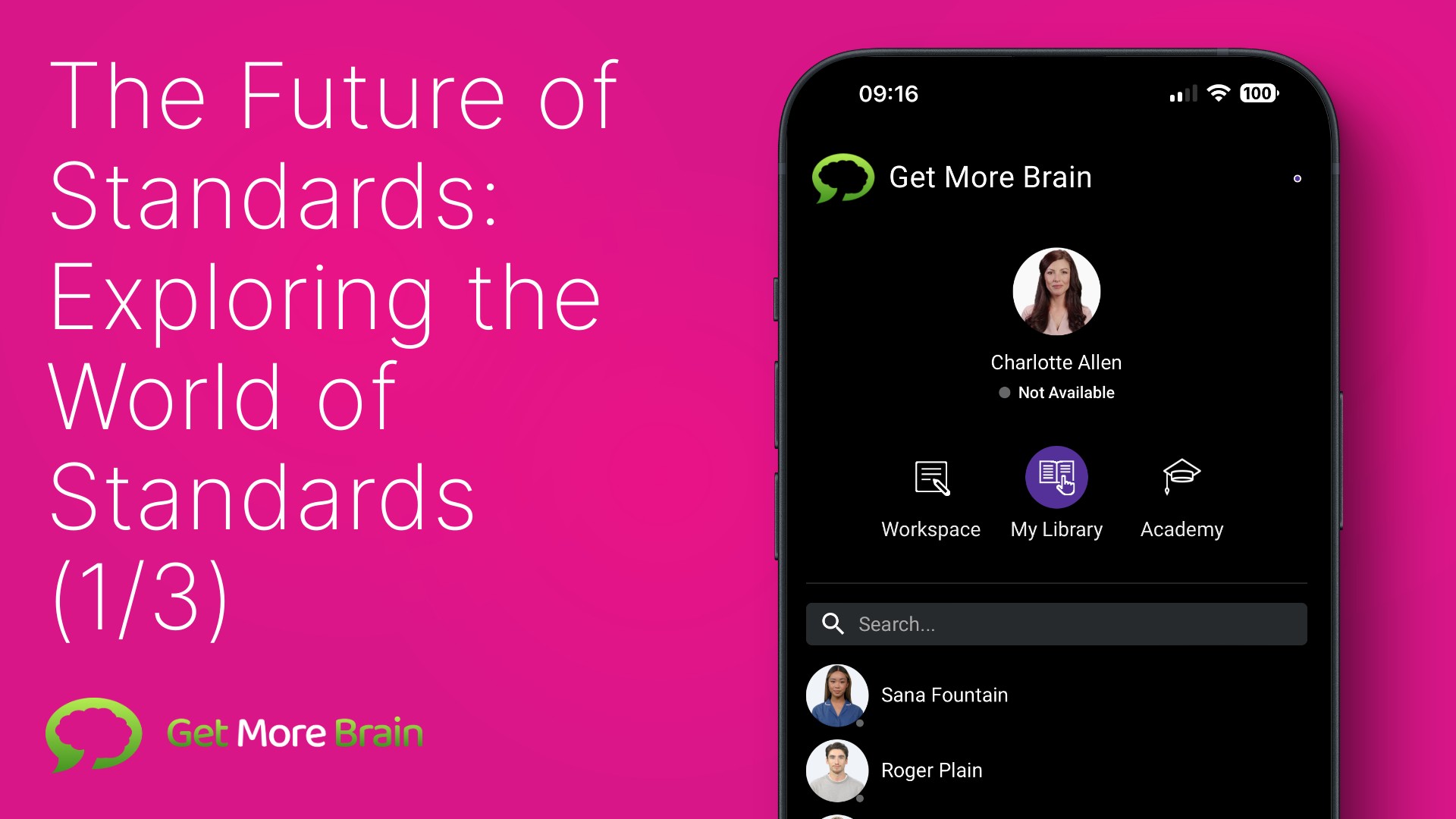The world of standards is undergoing a profound transformation. In an increasingly interconnected and mobile-centric world, the need for adaptive, accessible, and user-friendly standards has never been more pressing. This three-part blog series delves into the future of standards, exploring the challenges faced by Standard Developing Organizations (SDOs) and the innovative solutions that are reshaping the industry.
To kick off our exploration of the future of standards, we sat down with David Tsipenyuk, our expert for Standards Developing Organizations at Get More Brain. In this first installment of our three-part series, David shares his insights on the fundamental concepts of standards and their relevance in today’s world.
David, thank you for joining us today. Can you start by explaining what standards are and why they’re relevant?
David: Standards are the shared voluntary agreements that make our world work smoothly. They’re like the invisible rules that guide the creation of technology, process and products, ensuring consistency, safety, and interoperability. By promoting sustainability, inclusivity, and innovation, standards improve our lives in countless ways.
For instance, when you plug in your phone charger, you can be confident it will work because of electrical standards. This simple act contributes to a more sustainable future by reducing electronic waste and promoting responsible consumption. Similarly, when you connect to Wi-Fi, you’re benefiting from communication standards that ensure accessibility for people with disabilities, fostering a more inclusive digital world.
Can you elaborate on the role of Standard Developing Organizations (SDOs)?
David: SDOs play a crucial role in creating, maintaining, and updating these standards. They bring together experts from various fields to develop consensus-based standards that address industry needs. SDOs ensure that standards evolve with technological advancements and societal changes. They also provide a common actionable language for understanding and collaborating between a network of stakeholders, including industry, government, academia and other key institutions.
Could you give us some examples of well-known SDOs?
David: One that immediately comes to mind is a recent partnership that we started with Electrosuisse, a professional association for the electrical, energy, and information technology sectors in Switzerland. They offer a variety of services such as standards development, quality assurance of technical systems, certification, training of technical personnel, and systems engineering.
Other prominent examples include:
- ISO (International Organization for Standardization): They develop worldwide standards for various industries.
- IEEE (Institute of Electrical and Electronics Engineers): Focused on electrical, electronic, and computing technologies.
- ASTM International (formerly American Society for Testing and Materials): They develop standards for a wide range of materials, products, systems, and services.
- W3C (World Wide Web Consortium): Develops standards for the World Wide Web.
- IEC (International Electrotechnical Commission): Specializes in standards for electrical and electronic technologies.
These organizations, among many others, work tirelessly to ensure that the products and services we use every day are safe, efficient, and compatible across the globe.
The upcoming blog posts will explore how Get More Brain’s innovative platform is transforming the standards landscape by addressing mobile revolution challenges and enhancing the digital experience for standard users, while also highlighting specific solutions for SDOs including AI-powered tools, dynamic authoring, and global accessibility features.
Don’t miss out on these insightful discussions! Follow us on our website and LinkedIn for the latest updates and to join the conversation about the future of standards.




